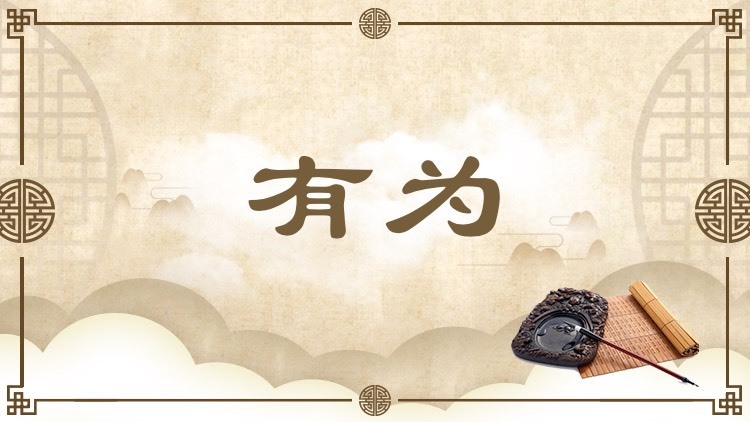Action

有所作为。道家将统治者的为政方式区分为“有为”和“无为”两种。所谓“有为”,是指统治者把自己的意志强加给他人或世界,不尊重或不顺应万物的本性。“有为”会造成对万物的自然状态的破坏,进而导致秩序的崩坏。因此,道家主张以“无为”来克服“有为”的弊端。而儒家等学派则在积极的意义上,肯定统治者的“有为”。此外,“有为”也泛指个人通过自己的努力来成就功业。
Daoist scholars divided governance by rulers into two categories: action and non-action. Here action generally means that rulers impose their will on others or the world with no respect for the intrinsic nature of things or without following such nature. This will undermine the natural state, leading to the breakdown of order. Daoist scholars therefore advocated non-action to overcome the defect of action. Scholars of Confucianism and other schools of thought, however, favored action taken by rulers as necessary. The term also refers to action a person takes to achieve success.
引例 Citations:
◎民之难治,以其上之有为,是以难治。(《老子·七十五章》)
民众之所以难于治理,是由于统治者有为,因此难于治理。
The people are hard to govern because the ruler takes action. (Laozi)
◎故将大有为之君,必有所不召之臣,欲有谋焉,则就之。其尊德乐道,不如是不足与有为也。(《孟子·公孙丑下》)
因此想要大有作为的君主,必然有不能召唤的大臣,想要谋划事情,就亲自去见大臣。君主崇尚美德而乐行善道,不如此便不足与之有所作为。
The ruler who wishes to take action is sure to have high officials who do not obey his order. So if the ruler wishes to adopt a plan, he must go and talk to them. Without integrity and such virtue, it's impossible for anyone to work with him. (Mencius)
推荐:教育部 国家语委
供稿:北京外国语大学 外语教学与研究出版社
责任编辑:钱耐安





